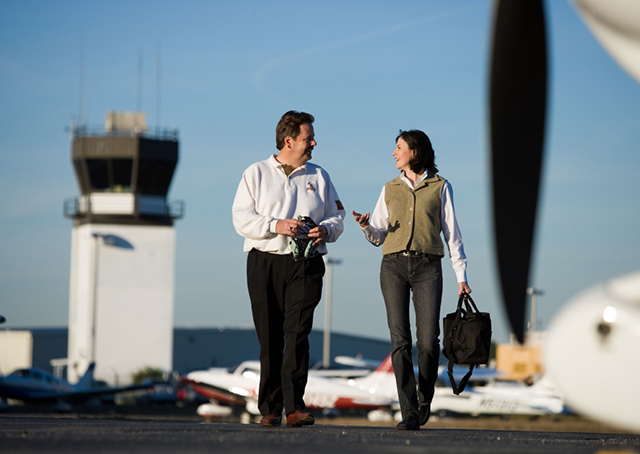
When Flight Training magazine invited Facebook followers to share what they recall flight instructors saying to them during flights, a wellspring of quotes and comments bubbled forth, capturing the fun, challenge, and camaraderie of learning to fly.
The recollections—some offered long after training—demonstrate how key concepts, once learned, won’t be forgotten. (“I fly a PC-12 and I still hear ‘right rudder, right rudder’ on takeoff,” commented the pilot of a Pilatus single-engine turboprop.)
No surprise: Much of what pilots recalled being said by CFIs concerned takeoffs and landings, as instructors exhorted trainees to use more rudder, or lower a wing into a crosswind, or guard the throttle on takeoff, then “hold it off” for a proper landing.
Some recalled how their instructors inflicted simulated engine failures, or offered pointers about making “small corrections” to master flight by reference to instruments.
There were recitations of broad adages about fuel awareness; the safety margin inherent in having plenty of altitude; the always-valuable mental discipline of “staying ahead of the airplane”; and its close relative, the reminder, “Always give yourself an out.”
The well-known guidance about making a smart go/no-go decision also made the list. It states that it is “better to be down here wishing you were up there” than the other way around.
Silence also belongs on the list (if your instructor was capable of it). As you move through pilot training, you enter a stage in which what the CFI doesn’t say becomes as important as what is said.
You may not realize you have entered this phase until it has been in progress for a while—just as you may not have noticed, when you were first learning to land, precisely when your CFI stopped applying minor control inputs to keep you on track and became an interested spectator.
Once you enter the nonverbal phase, you begin filling in the blanks yourself. The quieter the CFI becomes speaks volumes about your progress toward solo.
Another adage holds that noise, congestion, and the heat or cold of the seasons makes the cockpit a poor classroom.
True, the cockpit isn’t a great place to read a book. But the collected memories of lessons gleaned aloft demonstrate that as a place to learn to “hold it off, hold it off,” or break the habit of using “gorilla grip” on the controls, there’s no place like it.
What has your instructor said that sticks in your head? Share in the comments below.



